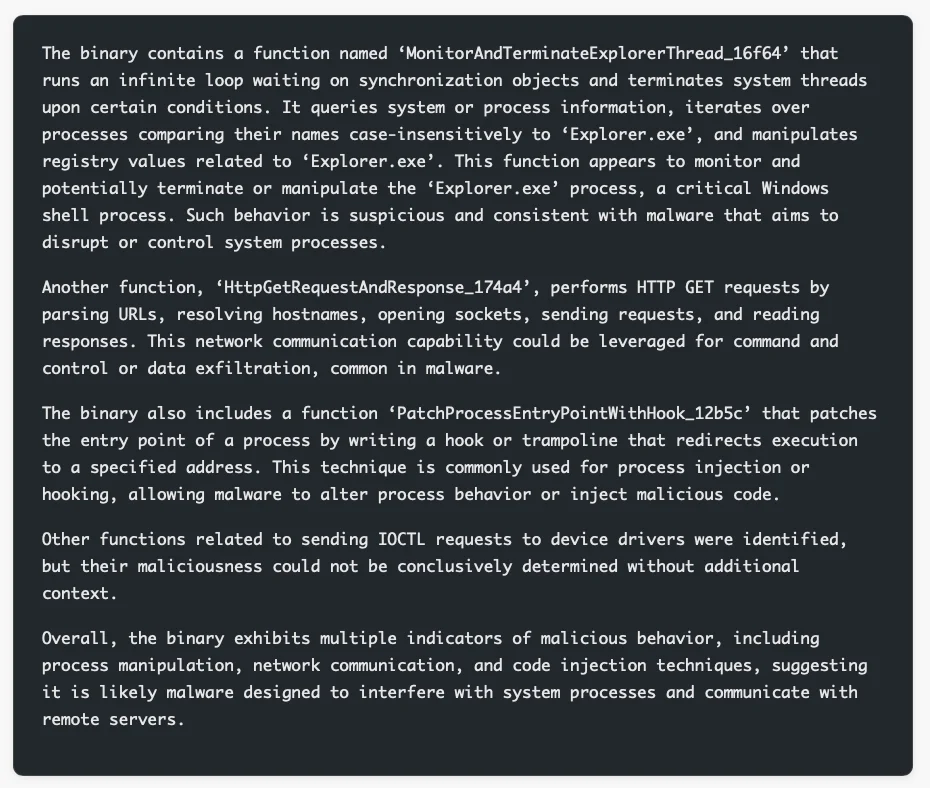Microsoft Project Ire AI detects malware autonomously
Microsoft's Project Ire AI prototype shows high accuracy in autonomous malware detection with low false positives.
Microsoft has unveiled Project Ire, an AI-powered prototype designed for autonomous malware detection, demonstrating significant potential in early testing. The system achieved 90% accuracy in identifying malicious files while maintaining a low 2% false positive rate on benign Windows drivers.
Key Performance Metrics
- Tested on known malicious and benign Windows drivers, Project Ire correctly classified 90% of files.
- In a separate test with 4,000 unclassified files, it flagged 87.5% of malicious files with only 4% false positives.
- Detected 25% of actual malware missed by automated systems.
"While overall performance was moderate, this combination of accuracy and a low error rate suggests real potential for future deployment," Microsoft researchers noted.
How Project Ire Works

- Automated Reverse Engineering: Analyzes file type, structure, and suspicious areas.
- Control Flow Graph Reconstruction: Uses tools like angr and Ghidra to map program execution.
- Iterative Analysis: Combines language models and specialized tools to examine functions.
- Chain of Evidence: Maintains transparent records for human review and system refinement.

Future Integration
- Project Ire will be integrated into Microsoft Defender as a binary analyzer.
- Long-term goal: Autonomous detection of novel malware in memory at scale.
"We can leverage the complementary strengths of both humans and AI for protection," said Mike Walker, Research Manager at Microsoft.
For more details, read Microsoft's research blog.
Related News
Kaizen AI Generators Power Continuous Improvement in Tech
Jan Bosch explains how kaizen AI generators enable systems to continuously adapt and improve through real-time monitoring and experimentation.
SF AI Meetup Explores Next Gen Autonomous Agents and ML
SF AI/ML Meetup on Engineering Next Generation AI Systems with autonomous agents and ML architectures featuring industry leaders.
About the Author

David Chen
AI Startup Analyst
Senior analyst focusing on AI startup ecosystem with 11 years of venture capital and startup analysis experience. Former member of Sequoia Capital AI investment team, now independent analyst writing AI startup and investment analysis articles for Forbes, Harvard Business Review and other publications.